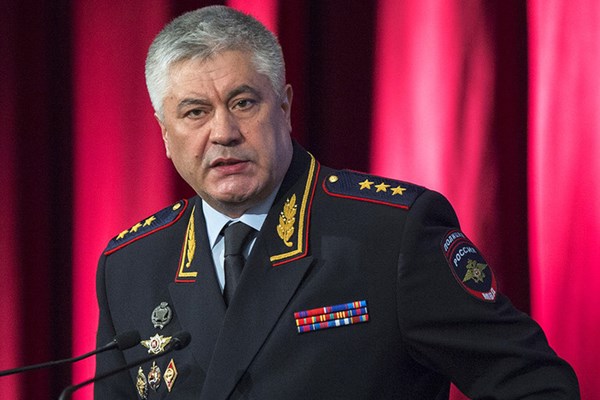Russian Minister of Internal Affairs says he received US visa 'without problems' despite sanctions
Russian Interior Minister Vladimir Kolokoltsev, who was among those added to the US sanctions list in April, has claimed that he received an American visa without any issues. Kolokoltsev came to the UN's New York headquarters for a meeting of heads of the police departments of UN member countries. On the sidelines of the summit, Kolokoltsev met with Jean-Pierre Lacroix, the UN Under-Secretary-General for Peacekeeping Operations, and discussed with him the participation of Russian policemen in peacekeeping missions.
"I do not see any specific problems, and did not sense [any difficulties]," Kolokoltsev answered to journalists' question about whether he had difficulties, considering the US sanctions recently imposed on him. He believes that issues of global security are "are not commensurate with individual sanctions."
"I can even say more that the organization of the protection of our delegation, the movements that the US State Department was engaged in, do not cause any criticism. Everything was done with quality and dignity, " TASS quoted the Interior Minister as saying.
During the visit, a meeting was held between Kolokoltsev and Wang Xiaohong, Vice-Minister of the Chinese Ministry of Public Security. According to Irina Volk, an official representative of the Ministry of Internal Affairs, the two officials discussed cross-border cooperation and security issues for the BRICS summit, which will be held in Chelyabinsk in 2020. Volk told this to RIA Novosti.
The Russian minister also met with Lee Chul-Sung, the Commissioner General of the National Police Agency of South Korea. Kolokoltsev said that work on a draft intergovernmental agreement between the Russian Federation and the Republic of Korea on the mutual recognition of driving permits "is in full swing."
On April 6, the US Treasury extended sanctions against Russia, adding 24 Russian businessmen and officials as well as 14 state and private companies to its sanctions list. Among the civil servants on the expanded list, in addition to Vladimir Kolokoltsev, were Presidential Advisor Yevgeny Shkolov; Vladimir Ustinov, Plenipotentiary Envoy to the Southern Federal District; Nikolai Patrushev, Secretary of the Security Council of Russia; and Timur Valiulin, Chief of the General Administration for Combatting Extremism at the Ministry of Internal Affairs, among others.
The sanctions measures include prohibition from entry into the country, freezing of assets, and seizure of real estate and bank accounts of individuals and legal entities in the United States.
